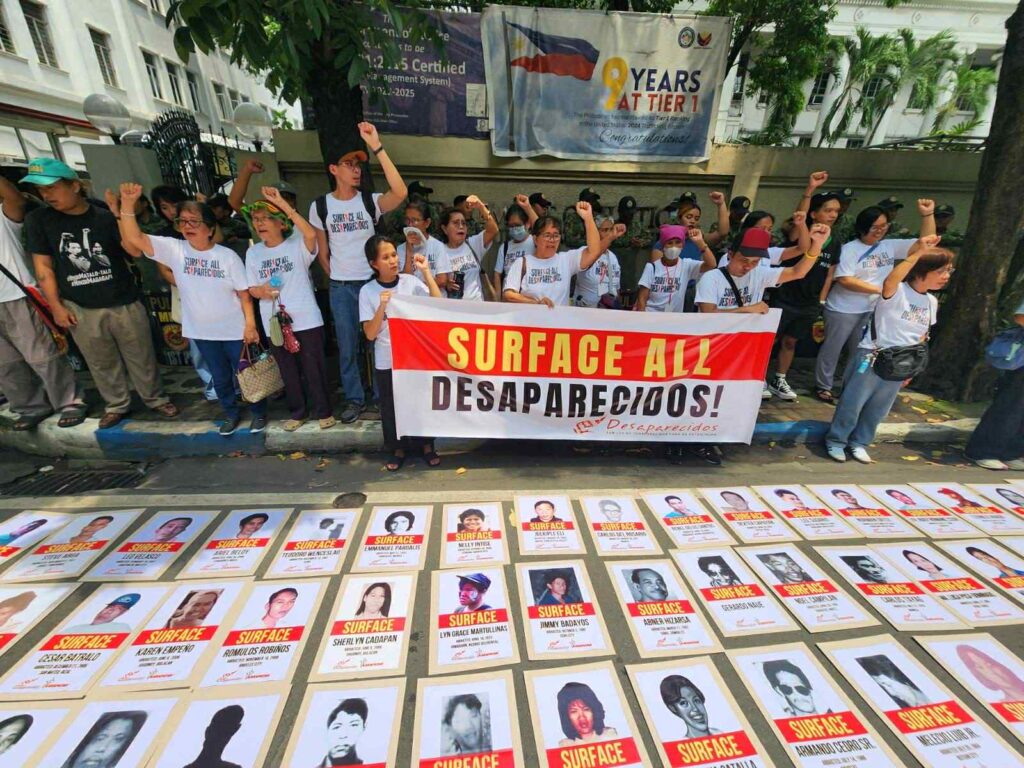Six years ago, the survivors of the bloody massacre perpetrated by the military in Barangay Ned, Lake Sebu, South Cotabato filed criminal charges against soldiers of the 27th and 33rd Infantry Battalions, holding them responsible for the deaths of eight T’boli and Manobo farmers on Dec. 3, 2017, before the Department of Justice (DOJ.)
The T’boli and Manobo farmers had been producing corn and coffee in the uplands of Lake Sebu long before land titles were introduced as proof of ownership of land by the Spaniards and Americans. Indeed, the T’boli considered Lake Sebu their culture center for centuries, even before the Philippine Republic was established. Now, they have been driven away from the ancestral domain not only by soldiers but by giant corporations like the D. M. Consunji, Inc. (DMCI), which has been on the hunt for coal and possibly manganese in Lake Sebu and wanted to transform Barangay Ned into a coffee plantation.
Massacre survivors Lita Wali, Peter Diamante and Jamel Culano submitted their affidavits narrating first-hand accounts of the massacre and abuses by the military forces before the DOJ since they believed they could not secure justice in the Municipal Trial Courts (MTCs) in South Cotabato as the military continued full-scale operations in their areas. The complainants said they were tagged as members of the New People’s Army (NPA) for protesting the grabbing of their ancestral land by DMCI, which suddenly found it in the goodness of their hearts to pursue agricultural development among minority groups that have the highest per capita production of corn nationwide.
DMCI also has a slew of concessions in Sultan Kudarat and other places in Mindanao where human rights violations have been perpetrated by their security guards and paramilitary units, which are coddled by the military. This is the same DMCI that has a virtual monopoly of the local coal supply from Semirara that also feeds their power generating plants. It is the same company that built a huge condominium that blocks the view of the Luneta. One of its property development projects also skidded as Chinese buyers opted out, leaving them scrounging for American buyers. David Consunji, the late patriarch of the Consunji family, was a long-time public works secretary under the Ferdinand Marcos Sr. dictatorship.
The Kalipunan ng mga Katutubong Mamamayan ng Pilipinas (Katribu) and the National Union of People’s Lawyers (NUPL) helped the complainants file the criminal charges before the DOJ. Then Katribu secretary-general, Pya Malayao said “six months have passed but the Commission on Human Rights (CHR) in Region 12 has refused to release its investigative report on the case even if the relatives of the victims have asked for it.” She said the massacre was clearly an offshoot of the martial law in Mindanao and the counter-insurgency program Oplan Kapayapaan (OPK.) The survivors and the distraught T’boli and Manobo communities in Lake Sebu have sought justice for more than six years and may have to wait longer.
Nearly seven years after the Lake Sebu Massacre, DMCI is back again in the limelight, with the people of Candoni, Negros Occidental set to be evicted to pave the way for a P2-billion palm oil project of DMCI in Barangays Gatuslao, Agboy and Payawan, with journalist RJ Ledesma of AlterMIdya reporting that the DMCI will take control of a 6,652-hectare area classified as forest land, with 4,000 hectares of it inhabited by members of indigenous people (IP.) The IP communities are surprised by the sudden conversion of the area into a plantation and argued that had questioned the Department of Environment and Natural Resources (DENR) for granting an Integrated Forest Management Agreement (IFMA) to Hacienda Asia Plantation, Inc. (HAPI) on Oct. 14, 2009. If the area is part of an IP ancestral domain, the DENR has no business converting it into a palm tree plantation.
Paghidaet sa Kausawagan Development Group (PDG), a farmers’ NGO, expressed concerns over the potential environmental and social impacts of the proposed palm oil plantation. In May 2023, PDG warned that DMCI’s initial activities, including worker hiring and preparation for seedling propagation and temporary infrastructure, have already begun despite formal petitions condemning the legitimacy of the DENR agreement with HAPI.
On July 23, 2024, the Kilusang Magbubukid ng Pilipinas – Negros (KMP-Negros) criticized the DENR, the local government’s environment committee, and the Candoni local government unit (LGU) for approving the reclassification without the knowledge of the IP community and for giving short shrift of the project’s impact on residents’ homes, livelihoods and the environment. Palm oil projects in Indonesia and Malaysia have been condemned for the destruction of forested land for the cultivation of cheap palm oil. Burning trees to clear Indonesian forests have caused smog to drift to Singapore, choking many residents.




